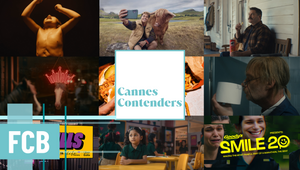
Kodak Launches Tool to Break New Ground in Therapy for Dementia Patients

“Memory Shots” helps dementia patients capture memories that were never shot on film, offering a major breakthrough in ‘photo reminiscence therapy’.
Re-capturing cherished memories
Photos are one of the most important forms of therapy to help dementia patients remember a moment in time and inspire them to talk. But not every cherished moment has a photo.
To break new ground in ‘photo reminiscence therapy’, the Belgian distributor of Kodak is launching “Memory Shots”, an easy-to-use, AI-powered tool that allows dementia patients and their therapists or caregivers to describe a memory, and create a photo that looks exactly like it was shot by a Kodak camera from that time period.
“Memory Shots” even allows users to edit and add real faces until the patient feels the photo accurately reflects the moment in time they are trying to describe. Offering them a trip down memory lane, while also evoking a more in-depth conversation with those around them.
Combining different technologies
“Memory Shots” uses Finetuned Stable Diffusion XL as a base, and is complemented by: Controlnets, IPAdapter, FaceID, Inswapper and Codeformer, with extra Fine-tuned LLM for information extraction and translation to a diffusion prompt. The tool makes use of large language models and open image diffusion models to generate photorealistic images based on a conversation about a memory.

Longer and more detailed conversation
Stefaan De Beukelaer from H. De Beukelaer & C° NV, distributor Benelux of Kodak, “As a brand that’s been around for more than 130 years, we know a lot about how photos can be incredibly important for our mental wellbeing and play a major role in preserving or bringing back memories. In joining forces with dementia experts, we hope to make a significant impact in improving the lives of these patients.”
Erik Salmon, professor of neuroimaging at the University of Liege added, “The problem with Alzheimer’s is that people withdraw and have less and less contact with others. ‘Memory Shots’ allows us to bring up new topics, add details, gather different opinions, and reconstruct a memory of which no photo exists. All of this helps foster conversation and improves their quality of life, which is so important for their treatment.
Lucie Leroux, from ‘Stop Alzheimer’ added, “While we were testing the tool, it was amazing to see how ‘Memory Shots’ allowed us to progress from a simple memory, such as going to school, to longer conversations to everything from classmates and the war. And the conversation lasted for many minutes, with the patient continuously being attentive. The fact that you can keep editing the photo allowed us to keep digging for more detailed information, and help spark more memories.”
The tool was conceived and developed by creative agency Happiness, an FCB alliance, in partnership with all Belgian dementia organisations including Alzheimer Liga Vlaanderen, Alzheimer Belgique, Stopalzheimer.be, Expertisecentrum Dementie Vlaanderen, and Baluchon Alzheimer. Financed by Kodak Images in Belgium, the tool is now available for free to all dementia treatment centres, with over 70% of centres already using “Memory Shots” to improve the life of dementia patients across the country.















